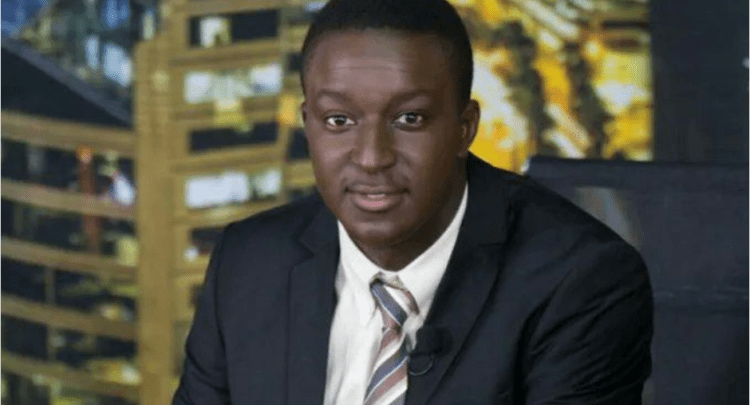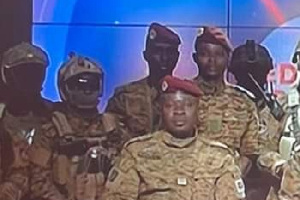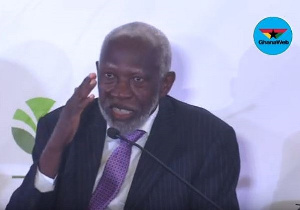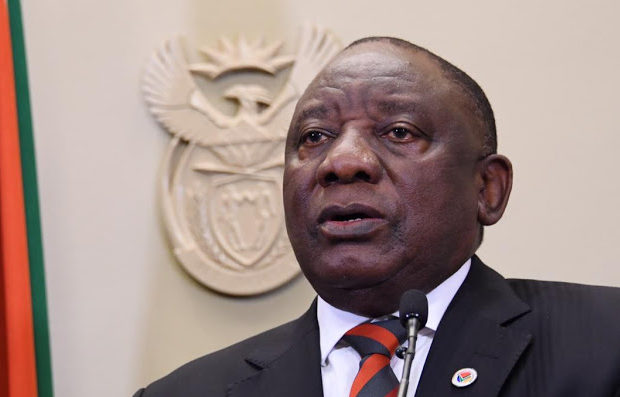News Africa
Russia-Africa Summit to Focus on Neocolonialism and Global Politics

In a run-up to the second Russia-Africa summit, set to be held in St. Petersburg on July 27-28, both Russian and African experts say it will distinctively differ from the first such event, which took place in Sochi in October 2019, Vedomosti writes, citing a report by the Petersburg Politics foundation.
Attitudes toward Russia throughout the world have become polarized since the start of Moscow’s special military operation in Ukraine, and African nations have been no exception. A group of African countries led by South Africa have put forward a peace initiative to resolve the Ukrainian conflict. Meanwhile, Russia’s influence on the social and economic situation in African countries has increased in line with rising prices for food, fertilizer and energy.
This year, political and security issues will prevail at the Russia-Africa summit, said Alexey Maslov, director of Moscow State University’s Institute of Asian and African Studies. “First, the agenda of the 2019 summit has not been implemented yet because of changes in the international political situation. Second, the African track in Moscow’s [foreign] policy is part of Russia’s overall pivot to the Global South, which is why political issues will most likely dominate the forum,” the expert pointed out.
African countries have been facing significant pressure from the West for the past year, so the second summit will take place in a denser atmosphere than the first one, Rakhimbek Bobokhonov, senior researcher at the Center for Civilizational and Regional Studies of the Russian Academy of Sciences’ Institute for African Studies, noted. However, African nations have no fear of the West and have no plans to jettison their cooperative relations with Russia to satisfy the West’s demands.
For Africa, Russia is currently the partner of choice, which is getting a warmer reception than the West and even China. In addition, Moscow’s ties with Africa may only become stronger in the near future because, with the grain deal now dead, Russian companies and African countries will negotiate directly at the summit on supplies of food and humanitarian aid.
The Valdai Discussion Club, on July 18 also held a pre-summit session where the latest report titled “Russia and Africa: An Audit of Relations” was presented and thoroughly discussed by both Russian and African experts. In presenting the report, Yelena Kharitonova, a senior researcher at the Institute of African Studies, noted that the first summit, in 2019, went under the motto of Russia’s return to Africa, meaning an intensification of diplomatic work, which was very effective in the Soviet times.
But Russia’s return to Africa has faced a number of challenges and setbacks. The outlook for a return to Africa was very optimistic in 2019, with an abundance of plans, but that was before COVID, the Ukrainian crisis and the special military operation. “The 2023 summit will be held in other conditions, which in some ways will be tougher because the opposition to our Russia-Africa project has never been so aggressive as it is now,” Kharitonova said.
She said the focus of the upcoming summit is changing in view of the current geopolitical circumstances and the policies of former Western colonial powers that view Russia as a periphery resource-rich country, thus stripping it of the right to sovereignty along with Africa.
“This is a summit that comes under a different motto: reshaping the world. It is a kind of new national liberation struggle. It is a struggle for decolonization,” she said. “Both the African and the Russian side understand this. And while in 2019 we still had time to deliberate, to do things at a leisurely pace, now we are in a situation where we have to act decisively and quickly.”
There have been various different thoughts regarding the expected development and Russia’s engagement in Africa. There are so many development-related issues which Russia simply overlooked in its policy. Africans frequently talk about social responsibility, about justice, about long-term projects, about the fact that Africa needs to develop, not just trade in military arms and weapons. The researcher said that Africa thinks in terms of long-term strategic categories and the African Union’s Agenda 2063 document is testimony to that.
Laura Chkonia, a researcher at the Center for Middle Eastern and African Studies at the Institute of Middle Eastern and African Studies of the Moscow State Institute of International Relations, spoke about the effectiveness of implementing summit decisions. During the first summit so many bilateral agreements have simply not been implemented. It was a show of symbolism.
Chkonia underlined the fact that the Russia-Africa summit is the youngest compared with similar formats of other major actors in the region. “If we look at the declarations of some African summits: There is a basic memorandum, and it sets a certain direction. If we talk about Indian best practices: They have an action plan that is signed as part of the summit. This creates a roadmap that allows them to stick to a certain plan,” she went on to say. “In light of ongoing developments, Russia needs a smart and competitive African strategy and a workable roadmap to implement it.”
Besides, the experience of other countries, according to the analyst, shows that the productivity of summits is enhanced by holding them consistently. She pointed to Africa’s partners in China, saying they have held a summit, as promised, every three years without exception.
“In order to stick to the plan, what do other formats do? They have declarations, plans. They set the date and venue for the next summit. Moreover, a tracking mechanism is put in place, who will meet and with whom in between these summits, how often, and sometimes even the issues of these discussions are planned ahead,” Chkonia said. “I think we can learn from this.”
For objective reasons, it was decided to postpone the second Russia-Africa summit to 2023. The boost given to interaction with Africa at all levels in 2019 was not followed through in practice because of external factors, among other things, the impact of which can hardly be overestimated.
However, it appears there’s more to it than that. What are the economic expectations and what are the realities? What has been done and what not? Where is the current state of affairs now? What did African partners expect from Russia? What can Russia offer them? Relying, since the days of the Soviet Union, on friendship and mutual assistance and tested by time and even the total absence of interest in interacting with the African continent over the past at least 15 or even 20 years, Russian-African relations needed a sweeping reset.
The continent is growing at a breath-taking pace and is interested both in political and economic relations. Mindful of the past, the African countries are doing their best to diversify post-colonial and neo-colonial relations by expanding the gamut of external players.
The Russian public knows very little about Africa. Access to objective information is woefully lacking in both directions. Dialogue between civil societies can help remedy the situation. It can play a significant role in laying the foundations for building a new public opinion, and in Russia and Africa.
Unlike its Western opponents, Russia is not doing enough at the conceptual level which is not only about forming a positive image of Russia in Africa and a positive image of Africa in Russia, but also about promoting mutually shared values.
Russia’s one major weakness is the complete lack of PR strategy in the Russian-African relations, which is also bad for business. Now Russian media coverage is improving, but this is not enough. On the other side, Russians’ uncooperative attitudes toward African media is simply beyond description, especially now that the full power of the Western media machine is aimed at discrediting Russia.
In fact, to a large considerable extent, do Russian officials care about experts’ suggestions. Do Russians look at Africa from economic perspectives? Since the collapse of the Soviet, Russia, unlike other countries, acts on political slogans. High-level meetings and conferences have been characterised by juicy speeches and rhetorics, and ended up with mountainous bilateral agreements.
The 2019 summit was supposed to start a new era in Russia-Africa cooperation. The Africans were anticipating the investment to come to all sectors of the economy. But most Russian companies are still in the dark about how to build work with Africa. They are unaware of the entry points or the potential partners. They are not sure what the African countries really need, how to establish communication or to build financial models; how to ensure transaction compliance or to address differences in legislation and legal regulations between the African countries and the like.
While Africa needs concrete sustainable development, Moscow is only effectively addressing the task of promoting its political presence in Africa, and now aggressively soliciting support for its invasion into neighbouring Ukraine. The Russia-Ukraine crisis has created further global instability, as nations are struggling to recover from the adverse effects of Covid-19. A group of leaders have consistently called for peace through the use of diplomacy. This will likely dominate the discussions at the next summit.
With the pivot broadly towards the South, Russia now needs its own unparalleled mechanisms, as well as an all-purpose toolkit for building a Russia-Africa economic policy. Russia will have to discover a complete new formula for mutually beneficial cooperation with Africa. The second Russia-Africa Summit and Economic Forum is scheduled to take place in St. Petersburg from July 27-28. The first summit was held in Sochi in October 2019 under the motto “For Peace, Security and Development.”
Source: Thepressradio.com| 2023| Kestér Kenn Klomegâh





